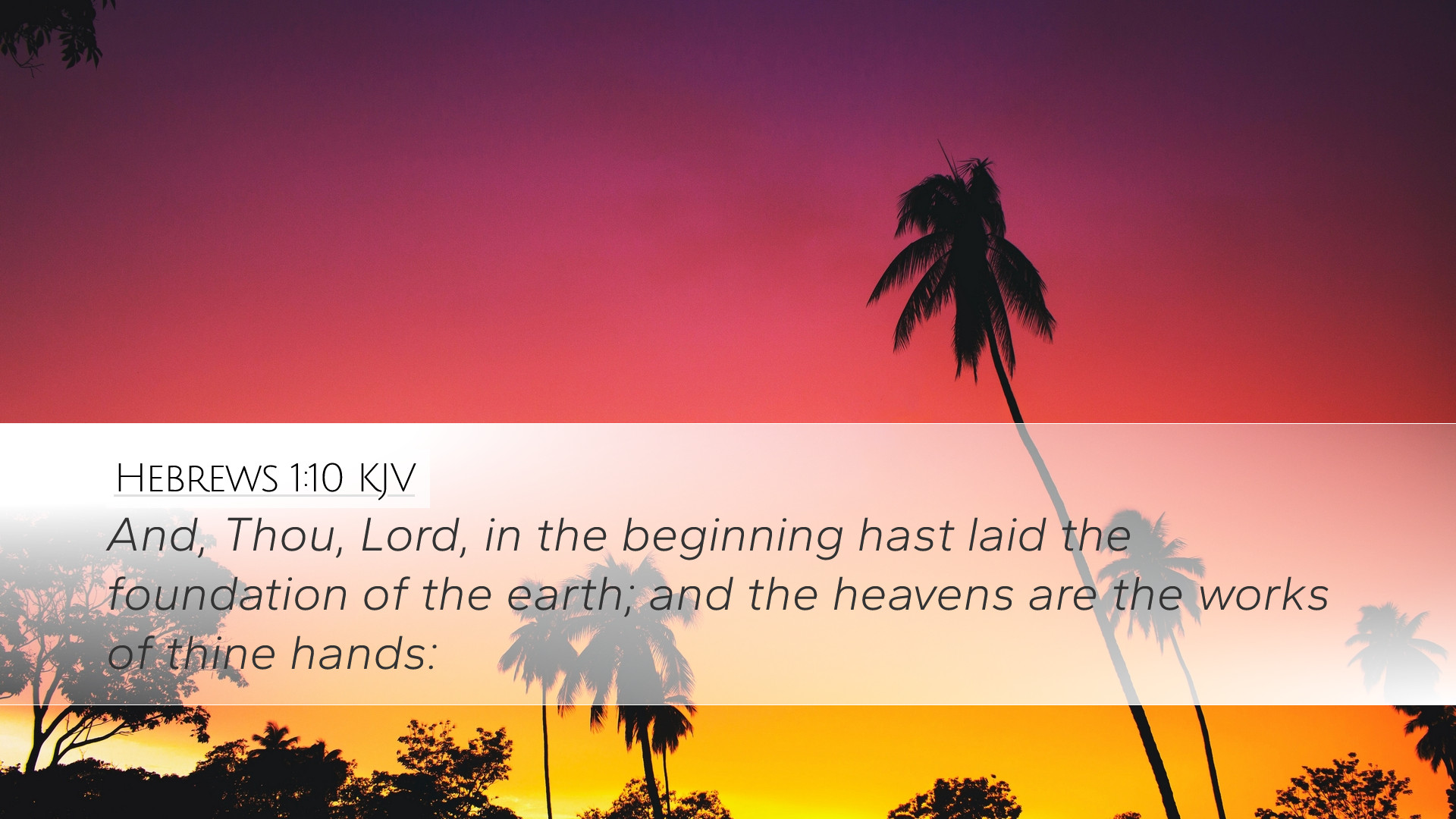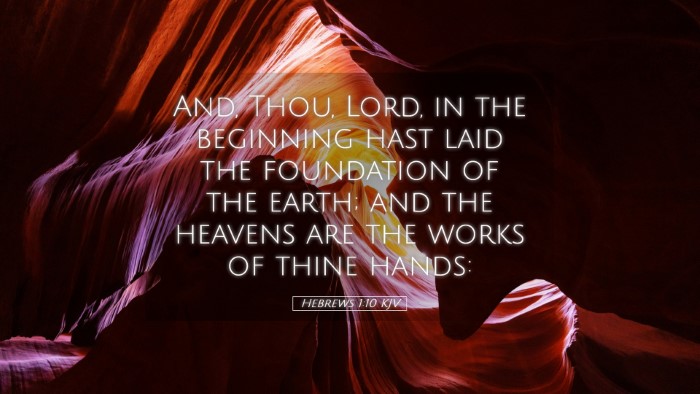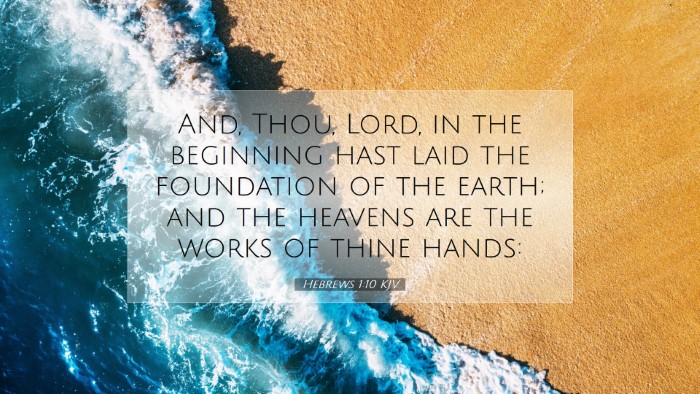Old Testament
Genesis Exodus Leviticus Numbers Deuteronomy Joshua Judges Ruth 1 Samuel 2 Samuel 1 Kings 2 Kings 1 Chronicles 2 Chronicles Ezra Nehemiah Esther Job Psalms Proverbs Ecclesiastes Song of Solomon Isaiah Jeremiah Lamentations Ezekiel Daniel Hosea Joel Amos Obadiah Jonah Micah Nahum Habakkuk Zephaniah Haggai Zechariah MalachiHebrews 1:10
Hebrews 1:10 KJV
And, Thou, Lord, in the beginning hast laid the foundation of the earth; and the heavens are the works of thine hands:
Hebrews 1:10 Bible Commentary
Commentary on Hebrews 1:10
The verse Hebrews 1:10 states: "And, Thou, Lord, in the beginning hast laid the foundation of the earth; and the heavens are the works of thine hands." This scripture serves as an important theological anchor within the Book of Hebrews, establishing the preeminence of Christ as Creator, and accentuating His divine nature.
Introduction
This passage draws from Psalm 102:25-27 and serves to highlight the authority and eternal nature of Jesus Christ in contrast to the created order. The apostle's use of the Old Testament is not mere attribution; it signifies Christ's eternal existence and His role in creation.
Theological Insights
- Christ as Creator: This verse asserts that Jesus, referred to as "Lord," was instrumental in the creation of the world. Matthew Henry emphasizes that God the Son, being one with the Father, took part in establishing the universe. This attribution signifies not only Jesus' divinity but also highlights His active role in creation.
- The Eternal Word: Albert Barnes notes the phrase "in the beginning," linking the text to Genesis 1:1. This strengthens the understanding that Jesus, the Word (John 1:1), was present at creation, revealing His eternal nature and existence before any created thing.
- The Contrast with Creation: Adam Clarke points out the distinction made between Christ and the universe. While the heavens and the earth will perish, Christ, as their Creator, remains eternal and unchanging. The use of this text serves to elevate the Lordship of Christ above all created entities.
Exegetical Analysis
The passage has a rich theological grounding that can be unpacked further:
- Foundation and Works of His Hands: The “foundation” refers to the earth’s very basis, while “the heavens” as “the works of thine hands” implies a personal involvement in creation, rather than an impersonal act. This personalization of creation underscores the intimate relationship Christ maintains with the created order.
- Implications of Creation: The act of creating is significant as it denotes authority and power. If Christ is indeed the Creator, then all creation is subject to Him. This has profound implications for understanding His role in salvation and ongoing interaction with humanity.
- Typology and Christology: The quoted Psalm also points to the typological nature of the Old Testament in revealing Christ. This framework assists in understanding how the Old and New Testaments intertwine to form a cohesive narrative around the person and work of Christ.
Historical Context
Understanding the historical backdrop of Hebrews is vital for interpreting this verse. The audience of Hebrews consisted largely of Jewish Christians grappling with their identity in light of their cultural heritage and the raging controversy regarding the identity of Christ.
By referencing the Psalmist, the author of Hebrews effectively addresses their concerns, reinforcing the idea that Jesus is the fulfillment of Old Testament promises and prophecies, thus solidifying His position as the ultimate authority.
Pastoral Applications
- Assurance in Christ: For pastors, the knowledge that Christ is Creator can instill confidence in the ultimate authority of His Word. His creative word, still preserving the universe, remains effective in the spiritual lives of believers today.
- Understanding God’s Sovereignty: Believers are encouraged to trust in God's sovereignty over their lives. The same Christ who established the heavens and the earth is intimately involved in our existence, providing meaning and purpose.
Conclusion
Hebrews 1:10 serves as a profound reminder of the power and majesty of Christ as both Creator and Lord. As believers, recognizing the centrality of Christ in creation enriches our understanding of His divine nature and His role in redemption.
The insights gleaned from the commentaries of Matthew Henry, Albert Barnes, and Adam Clarke highlight the theological depth of this verse, illustrating its importance for teaching, preaching, and the personal edification of every believer.


